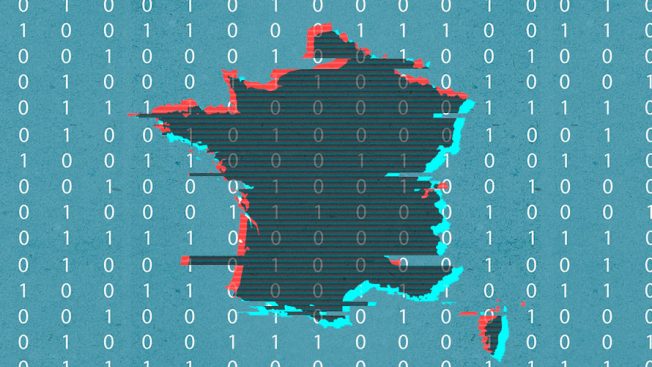In a sweeping bid to restore his country’s image and elevate its standing in the global business community, French president Emmanuel Macron has hosted a string of international summits since taking office on issues such as tech and entrepreneurship to lure foreign investors with an overriding message: France is back.
But to fuel the country’s economic upswing, Macron’s administration is also looking inward. Last month, it laid out a comprehensive blueprint authored by Fields Medal recipient Cedric Villani called “For a Meaningful Artificial Intelligence,” which outlined a national strategy to become a leader in the field, overhaul digital innovation around AI and make sure labor-market and technological disruptions support inclusivity and diversity.
“AI is not just a sector; it will shape an unprecedented transformation of society and the economy, and we’re very proud to be ushering in a new AI era for France” Mounir Mahjoubi, France’s secretary of state for digital affairs, told Adweek.
“France is regarded as a leader in AI but needs to mobilize substantially more resources to bring in scientists, tech firms and dedicated research centers from the largest corporations,” he said.
Today, Facebook, Fujitsu, Google, IBM and Samsung already hold AI centers in France.
The blueprint came paired with plans to invest $1.8 billion over the next five years in artificial intelligence and research with the goal of creating an entirely French AI ecosystem, making the country an international hub capable of attracting the best talent and championing the most promising AI startups and research projects in France.
What’s more, the government has pledged to reform its big data policy to unlock the growth potential of French companies that dominate their industries in sectors such as health, transportation and media.
“We can’t aspire to develop AI in France without expanding access to data and algorithms,” Mahjoubi said. “The key is to give companies in the digital space the tools to create value from data while protecting consumers. Data usage must be overseen by democratically elected governments and not by commercial transactions.”
Havas Media is one of these champions the French government is keen to promote overseas. The global media and advertising agency has a longstanding record of turning data into knowledge and action. It recently acquired MFG Labs, a startup specializing in data science and deep learning.
And under the impetus of Havas CEO Yannick Bollore, the company just opened an AI lab in Montreal that will focus on AI applications to consumer experience. The company now runs impact simulation campaigns using Agent Based Models, or ABM, Machine Learning and behavioral economics, while its new tech solution Havas X optimizes relations between brands and consumers using AI.
Ekino, the digital agency for the global Havas network, now experiments with AI bots for a wide range of services, from service-delivery platforms to web-experience management and responsive web applications.
Havas is partnering with French tech firms such as Southpigalle, Snips and 10h11 on areas such as augmented reality, automated decision-making processes and marketing programming. But the company’s obsession with AI is to personalize and scale consumer-brand relations and creative elements.
“Let’s not forget that human activity has always relied on tools to create and innovate,” said Frederic Josue, global executive advisor at Havas and director of 18 Labs, the company’s global research and innovation center. “Today, most industrial actors leverage artificial intelligence for automation and cost cutting. Our main ambition at Havas is to innovate, create and be more proactive towards our clients.”
Josue contends that while Macron’s strategy signals that France is making headway, resource commitments are still falling way off the mark. France’s spending in R&D stands at 2.4 percent of GDP, which pales in comparison with countries it’s trailing such as South Korea and Israel.
Josué also regrets that nothing is enshrined in Macron’s AI plan to support the forays of large telecommunications companies such as Orange into mobile consumer experience or cyber security.
“I understand that the government’s investment commitments are restricted by our public deficits,” he said. “But we’ve already completely missed out on the clean-tech revolution. … If we want to do this right, we need first and foremost to ramp up investments to build our own giants. We also need to find better incentive mechanisms to retain talents. We have some of the most qualified scientists here in France to build AI capabilities, but when you look at what American firms are willing to offer, it’s a no-brainer for them”.
Macron’s AI plan is a first step in encouraging a culture of innovation in France. There are still too few examples of synergies between research and academic institutions and the private sector like the ones we are accustomed to in the U.S.
On the bright side, Macron has vowed to invest $15 billion between 2018 and 2022 to train 1 million young professionals in the digital space. The French VC industry is also the fastest growing in Europe. If AI grows in France, it will be an advertisement for French innovation.








